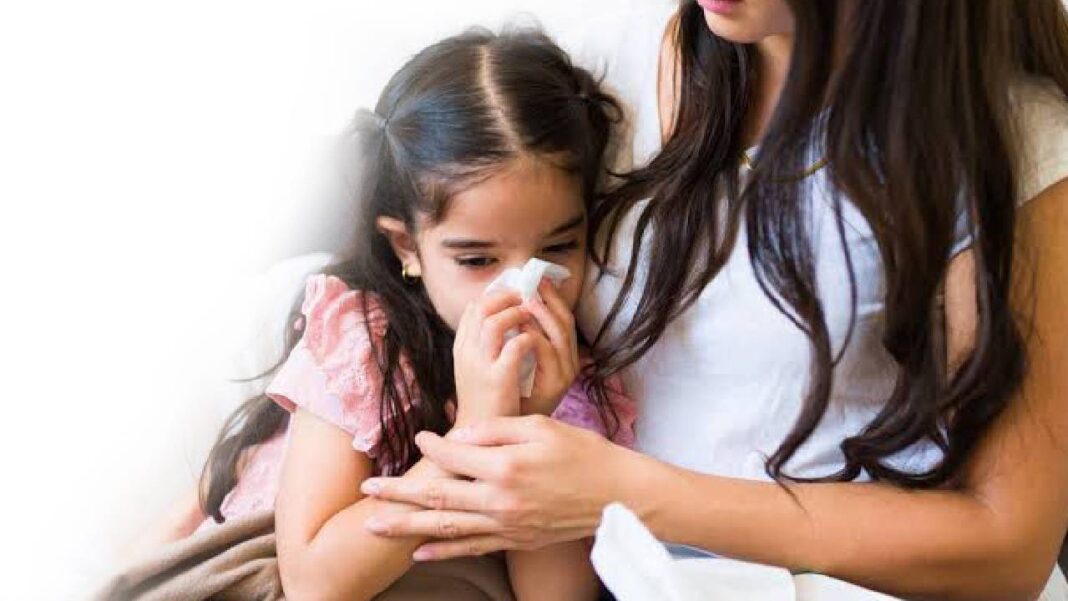As the seasons shift in regions like Telangana and Andhra Pradesh, parents often notice a worrying pattern: their children falling sick more frequently. Seasonal transitions — especially the abrupt change from dry summers to humid monsoons, or from pleasant autumns to chilly winters — place a considerable burden on young immune systems. Pediatricians at institutions like Hope Hospital emphasise that such shifts are more than just weather changes; they are potential triggers for a wide range of illnesses in children.
How Seasons Affect Immunity
Children, particularly those under the age of five, have developing immune systems that are still learning to adapt to their environment. With every seasonal shift, their bodies are forced to cope with fluctuations in temperature, humidity and allergen exposure. These adaptations can temporarily compromise their immunity, making them more vulnerable to infections. The monsoon season in India, for instance, brings with it damp and humid conditions that are ideal breeding grounds for viruses, bacteria, and fungi. As a result, there’s a notable uptick in vector-borne diseases like dengue and chikungunya, as well as skin infections caused by fungi. Similarly, the winter months are associated with respiratory illnesses, including influenza, asthma flare-ups, bronchitis and pneumonia, driven by colder temperatures and increased indoor crowding.
Common Seasonal Illnesses in Children
In Hyderabad and other urban areas, pediatricians observe a spike in viral fevers, gastrointestinal infections and respiratory issues during seasonal transitions. The summer-to-monsoon shift is particularly concerning due to water contamination that can lead to stomach infections. Meanwhile, the cooler months bring a wave of colds, allergic rhinitis, and flu-related complications.
Warning Signs of Weakened Immunity
Parents are advised to stay alert to subtle signs that may indicate a drop in their child’s immunity. These include frequent colds, recurring fevers, persistent fatigue, low appetite, irritability, disrupted sleep, skin issues like dryness or itchiness and stomach discomfort. Pediatricians stress that catching these early can prevent the progression to more serious illnesses.
Nutrition: A Cornerstone of Immunity
Nutrition plays a critical role in supporting a child’s immune response during these transitional periods. A well-balanced diet rich in proteins, vitamins and minerals ensures the body is equipped to fight infections. Seasonal fruits native to South India, such as papayas, guavas, and oranges, are rich in Vitamin C and serve as natural immunity boosters.
Additionally, superfoods like amla, turmeric milk, almonds (for zinc), yogurt (for gut health), leafy greens and protein sources like eggs or lean meats are especially recommended during seasonal transitions.
Outdoor Play and Hygiene: Natural Immunity Enhancers
Regular outdoor activity is essential for children’s health, not just for physical development but also to maintain optimal levels of Vitamin D, which is crucial for immune function. Activities like playing cricket or football improve circulation and respiratory strength, both key defenses against seasonal illnesses.
Equally important is maintaining strict hygiene. Parents should encourage regular handwashing, daily bathing, keeping nails short and clean, and practicing food and water safety. Simple habits such as covering one’s mouth when sneezing or coughing can go a long way in preventing the spread of infections — habits that are regularly reinforced in pediatric consultations at Hope Hospital.
Skin Care and Hydration During Extremes
In Hyderabad’s intense summers, it’s crucial to keep children well-hydrated with water and hydrating fruits like watermelon. In winters, skin care becomes a priority — using gentle moisturisers and maintaining a comfortable indoor humidity can prevent dryness and related skin irritations.
Supplements, Vaccinations & Deworming
To further bolster immunity, doctors recommend timely vaccinations — especially the annual flu shot before the onset of winter. Supplementing with Vitamin D and zinc is often suggested during periods of low sun exposure or when children display nutritional deficiencies. Regular deworming is another often-overlooked preventive measure, helping in nutrient absorption and overall immune health.
Sleep & Stress: The Silent Immunity Disruptors
Immunity isn’t just about food and medicine — it’s also about rest. Children who don’t get adequate sleep or who experience high levels of stress show weakened immune responses, making them easy targets for infections. Pediatricians urge parents to create consistent bedtime routines, limit screen time before sleep and foster calming environments to help children unwind.
Growing Influence of Climate Change
Doctors are increasingly concerned about how climate change is altering the landscape of pediatric healthcare. Extended monsoon seasons and unpredictable weather patterns have led to more frequent and intense disease outbreaks. Vector-borne diseases like dengue have become more prevalent and new patterns of illness are emerging due to prolonged exposure to extreme weather.
Urban Child’s Struggle
Urban lifestyles, often characterised by reduced outdoor activity and higher exposure to air pollution, put children at a greater risk for seasonal immunity issues. Limited interaction with natural environments and poor indoor air quality compound the problem, leading to a rise in allergies and respiratory conditions. Pediatricians recommend incorporating regular outdoor play in green spaces and improving indoor air quality with air purifiers or natural ventilation whenever possible.
Seasonal changes are inevitable, but their impact on children’s health can be managed with awareness, timely intervention and preventive care. A combination of balanced nutrition, physical activity, proper hygiene, adequate rest and regular medical check-ups forms the foundation of strong immunity in children.

(The author, Dr. Madan Mohan Rao Senior Consultant Pediatrician & Neonatologist, at Hope Hospitals, Hyderabad.)




